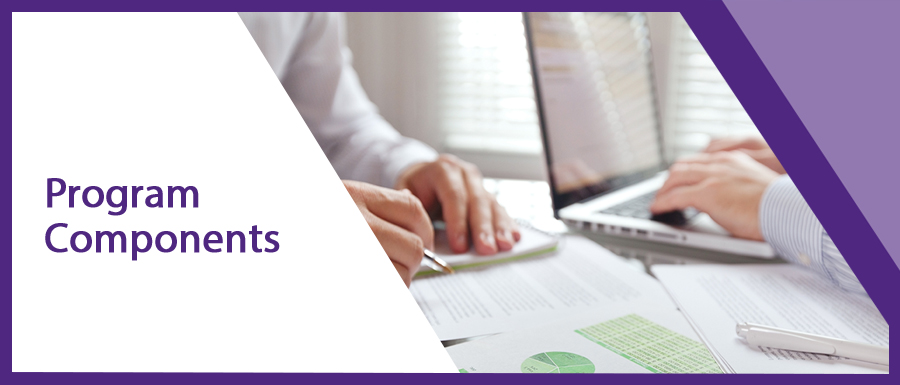Program Components
For more information about the Masters of Data Analytics Program, feel free to contact us!
Program Components

The Master of Data Analytics (MDA) program is a one-year professional science master’s program beginning each September, consisting of two terms of on-campus courses (fall and winter) followed by a summer Experiential Learning term, which in most cases involves students securing a paid experience working in
The MDA program will provide you with the skills needed to be proficient in technical data analytics and apply those skills in a specific field, or as a generalist practitioner. The experiential learning term helps ensure that you are ready to transition into a data analytics career in the public or private sector by providing valuable, practical experience applying those skills.
Currently, the MDA program offers the following three
- Artificial Intelligence
- Finance, Banking, and Insurance
- Generalist
Our curriculum is flexible. If you have a significant background in a data analytics-related field, such as Statistics or Computer Science, you will have the opportunity to deepen your knowledge in that discipline while broadening your level of expertise in the other. If you don’t have a degree in Computer Science or Statistics but have a strong quantitative and computational background, our curriculum will allow you to rapidly develop a fundamental skill set in technical data analytics related to these areas. For more details on admissions requirements see here.
Students enter the program at the start of the fall semester. The fall and winter curriculum is designed to ensure that you will:
- Develop strong, foundational, technical data analytic skills from statistics and computer science, learning state-of-the-art data analytics software and methods;
- Learn about a specific field where data analytics is used and see practical applications of data analytics to solve problems in that area;
- Be able to effectively communicate data analytics techniques and discoveries to both technical and non-technical audiences, and develop ethical judgement when conducting or assessing analyses;
- Have a competitive advantage when securing an employment opportunity to meet the experiential learning requirements of the program.

